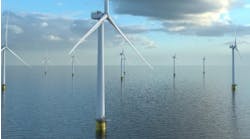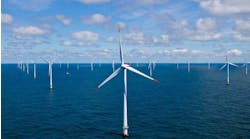Bruce Beaubouef * Managing Editor
Three of the major European international oil companies – BP, Shell and Equinor – are retreating from their renewable energy goals and low carbon ambitions to focus on fossil fuel development, according to a recent Reuters report.
The change comes as investors have grown skeptical about the European oil companies’ ability to sustain profits and compete with large American oil and gas companies.
Almost five years ago, BP had embarked on an ambitious attempt to transform itself from an oil company into a business focused on low-carbon power technologies. But now, according to the Reuters report, the British IOC is trying to return to its roots as a large-scale oil and gas developer in an attempt to spur growth, revive its share price and allay investor concerns over future profits.
Rivals Shell and Norway’s Equinor are also scaling back energy transition plans set out earlier this decade. Their change of direction reflects two major developments – the energy shock from Russia’s invasion of Ukraine and a drop in profitability for many renewables projects, particularly offshore wind, due to spiraling costs, supply chain issues and technical problems.
BP CEO Murray Auchincloss reportedly plans to invest billions into new oil and gas developments, including along the US Gulf Coast and in the Middle East, as part of his drive to improve performance and boost returns.
BP has also slowed down low-carbon operations, halting 18 early-stage potential hydrogen projects and announcing plans to sell wind and solar operations. It recently cut its hydrogen team in London by more than half to 40 staff, according to Reuters.
At a recent company town hall meeting, Auchincloss reportedly said that BP would focus on developing new oil and gas production assets – a reversal of predecessor Bernard Looney’s strategy to build up renewable energy systems, reduce emissions and slowly cut oil and gas output targets.
Similarly, Shell CEO Wael Sawan has reportedly indicated that his company is looking to take steps to improve its performance and returns, and close a valuation gap with US rivals Exxon Mobil and Chevron.
Equinor, Europe’s main supplier of natural gas since 2022, has reportedly launched a review of its low-carbon business, named internally REN Adjust, which includes plans to scrap several early-stage projects to focus on more advanced offshore wind projects.
According to Reuters, one Equinor official said that the company was adapting to market realities: “The goal is to strengthen competitiveness and to compete effectively when the industry rebounds after the current down-cycle.”
But the companies have not abandoned investments in low-carbon energy altogether. Rather, executives said, they are focusing on areas such as biofuels, which they feel confident can generate profit quickly.
Shell, BP and Equinor also continue to develop some offshore wind projects already underway and say they could invest further if the returns are competitive.
“What we’re finding with our transition growth businesses is that we need to expect the same level of returns as we do from our historic businesses if we’re going to deploy material capital over time,” Auchincloss told Reuters in late October.
France’s TotalEnergies has become the outlier, continuously investing in low-carbon and strongly outpacing Shell and BP’s renewables capacity. TotalEnergies has steadily grown its renewable energy generation capacity, far outpacing Shell and BP, according to Reuters’ analysis.




